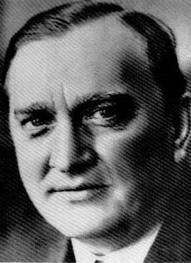Stefan Banach (['st?fan 'banax] ; March 30, 1892 – August 31, 1945) was a Polish mathematician. He is generally considered to have been one of the 20th century's most important and influential mathematicians. Banach was one of the founders of modern functional analysis and one of the original members of the Lwów School of Mathematics. His major work was the 1932 book, Théorie des opérations linéaires (Theory of Linear Operations), the first monograph on the general theory of functional analysis.Born in Kraków, Banach enrolled in the Henryk Sienkiewicz Gymnasium, a secondary school, and worked on mathematics problems with his friend Witold Wilkosz. After graduating in 1910, Banach and Wilkosz moved to Lwów. However, Banach returned to Kraków during World War I, and during this time he met and befriended Hugo Steinhaus. After Banach solved mathematical problems which Steinhaus considered difficult, he and Steinhaus published their first joint work. Along with several other mathematicians, Banach formed a society for mathematicians in 1919. In 1920, after Poland had in 1918 regained independence, Banach was given an assistantship at Jagiellonian University. He soon became a professor at the Lwów Polytechnic and a member of the Polish Academy of Learning. Later Banach organized the "Lwów School of Mathematics". Around 1929 he began writing Théorie des opérations linéaires.After the outbreak of World War II, in September 1939, Lwów was taken over by the Soviet Union. As a corresponding member of the Academy of Sciences of Ukraine, he promised to learn Ukrainian. In 1941, when Germany took over the city, Banach, his colleagues, and his sons worked as lice feeders at the Typhus Research Institute. When the Soviets recaptured Lwów, Banach reestablished the University. However, because the Soviets were removing Poles from annexed formerly Polish territories, Banach prepared to return to Kraków. He died in August 1945 after being diagnosed with lung cancer seven months earlier.Some of the notable mathematical concepts named after Banach include Banach spaces, Banach algebras, the Banach–Tarski paradox, the Hahn–Banach theorem, the Banach–Steinhaus theorem, the Banach-Mazur game, the Banach–Alaoglu theorem and the Banach fixed-point theorem.

Birth date
1892-03-30
Birth year
1892
Death date
1945-08-31
Death year
1945
Individualised gnd number
11865697X



Comment
0